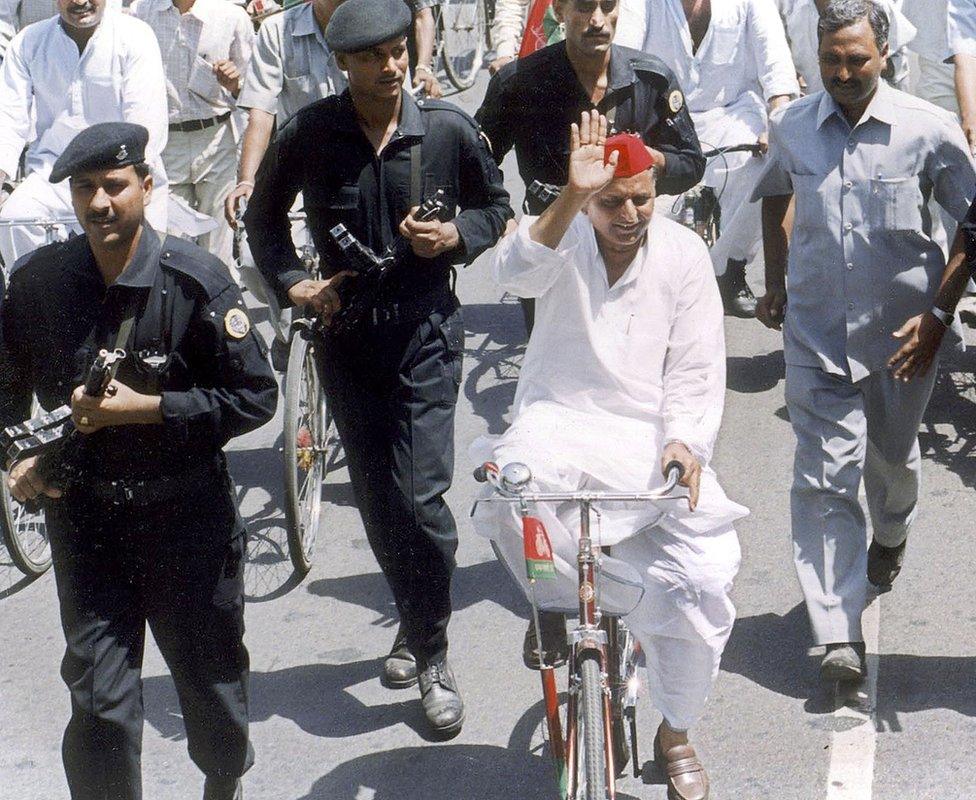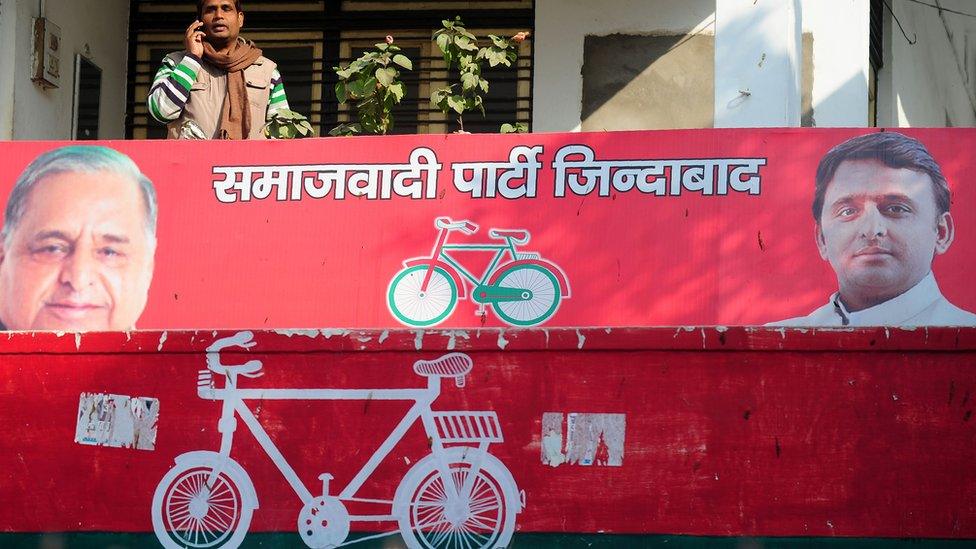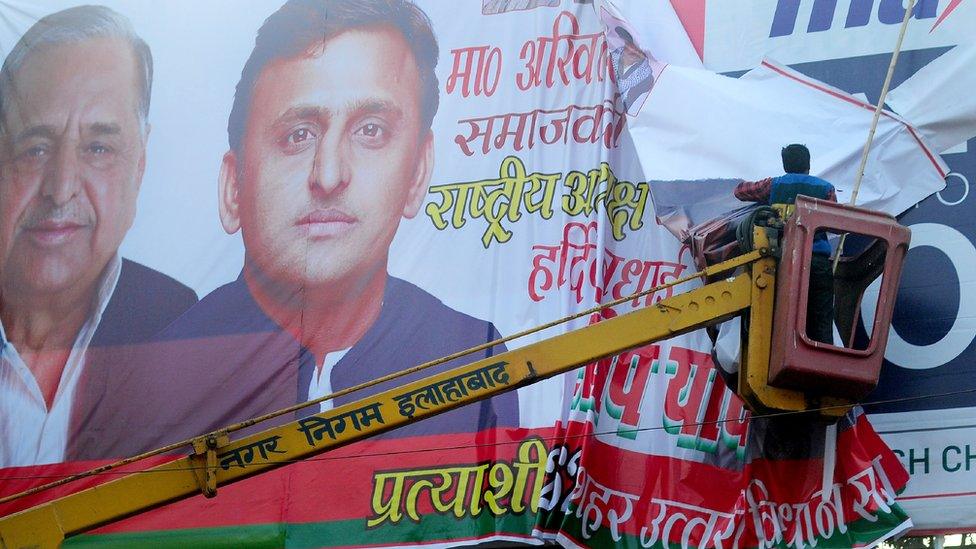Why the bicycle may decide the fate of 200 million people
- Published

Victory in the battle for the bicycle will boost Akhilesh Yadav's chances in the upcoming polls
The northern Indian state of Uttar Pradesh, with a population of 200 million people, will go to the polls next month. But much of the election has focused on the unlikeliest of objects - the humble bicycle. The BBC's Ayeshea Perera explains why.
India's election commission on Monday ruled that the iconic "bicycle" symbol, which is synonymous with the ruling regional Samajwadi Party, would go to the faction headed by current Chief Minister Akhilesh Yadav.
"The group led by Akhilesh Yadav is the Samajwadi Party and is entitled to use its name and its reserved symbol, the bicycle, for the purposes of elections," the Election Commission said in its order.
Analysts say the decision is a huge boost for Akhilesh Yadav, who has been battling his father Mulayam Singh Yadav, who is also a three-time chief minister of the state, for control of the party and the bicycle symbol. Celebrations have broken out outside the party office in the city of Lucknow.
The family drama gripping Indian politics
India announces key state elections
Akhilesh Yadav has consistently maintained that he has the support of a majority of party members. The Election Commission confirmed that he had the support of 4,716 of the party's 5,731 delegates.
"Losing control of the bicycle at such a late stage of the campaigning process would have put both factions on the back foot," the executive editor of India Today Television, Javed Ansari, told the BBC.
Why are symbols so important?
The importance that party symbols play in Indian politics cannot be overstated.
In a country where swathes of the population remain illiterate, symbols act as visual aides and are often the only link between candidates and the voting population, particularly in rural areas.
This is especially true in Uttar Pradesh, where more than 30% of the state's 200 million population remain illiterate, according to the 2011 national census.
Therefore, political parties invest a lot of time and money on popularising their party symbols.
Poll pundits have said that the election is too close to call, and even a minor setback could mean the difference between winning and losing. Losing the bicycle symbol at this stage may well have erased any advantage the party would have gained from the disruption caused to voter's lives by the Indian government's decision to ban 500 and 1,000 rupee notes as a measure to curb corruption.

Election symbols act as visual aides for voters, particularly those who cannot read
Given that Uttar Pradesh has the largest number of political representatives, a win in the state is seen as crucial to all the main players involved. Apart from the Samajwadi Party, the other contenders are the Bharatiya Janata Party which rules India's federal government, the Bahujan Samajwadi Party led by former chief minister and Dalit icon Mayawati, and the Congress party.
The fight to control symbols is not a new phenomenon in Indian politics.
In pictures: India election graffiti
Indian political parties with strange names
The country's oldest political party, the Congress, began contesting elections with a symbol of two oxen yoked to a cart under then prime minister Jawaharlal Nehru. When his daughter Indira Gandhi split from the party in 1969, she unsuccessfully fought to retain it, and was forced to adopt the symbol of a cow and calf instead.
She finally settled on the party's current "open hand" symbol in 1980.
"The Congress under Indira Gandhi was able to successfully win an election even under the new symbol, but that was a different time when the party was a monolith. Mrs Gandhi also had two years in which to re-educate people," Mr Ansari said.
The Samajwadi party "family drama"

The battle between father and son for control of the party has featured several twists and turns
The tension between father and son, which broke into open conflict last year, has been likened to US political drama House of Cards because of all the twists and turns the story has taken.
Both have gone after each other's loyalists since September last year, sacking and replacing party members in turn.
Matters came to a head in December when Mulayam Singh Yadav expelled Akhilesh Yadav from the party for six years for "breaking his trust". He reinstated him a day later, only to be rewarded with the largely ceremonial role of "chief mentor", a decision he decried as being "unconstitutional".
Following this, both factions approached the Election Commission, asking for the right to use the bicycle symbol.
It is not clear what Mulayam Singh Yadav will do next. He had previously said he would accept the decision of the Election Commission, but it is not yet known if he still plans to contest against his son, or whether yet another reconciliation is in the offing.